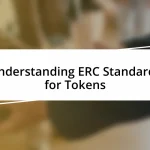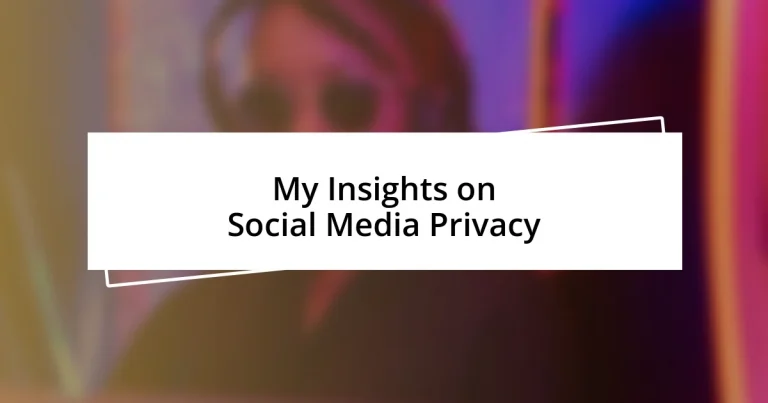Key takeaways:
- Social media privacy is vital for protecting personal information from identity theft, employment risks, and mental well-being issues.
- Adjusting privacy settings, being mindful of what you share, and conducting regular audits of your online presence are crucial best practices for safeguarding privacy.
- Understanding privacy policies can empower users to better protect their data and identify potential risks associated with social media platforms.
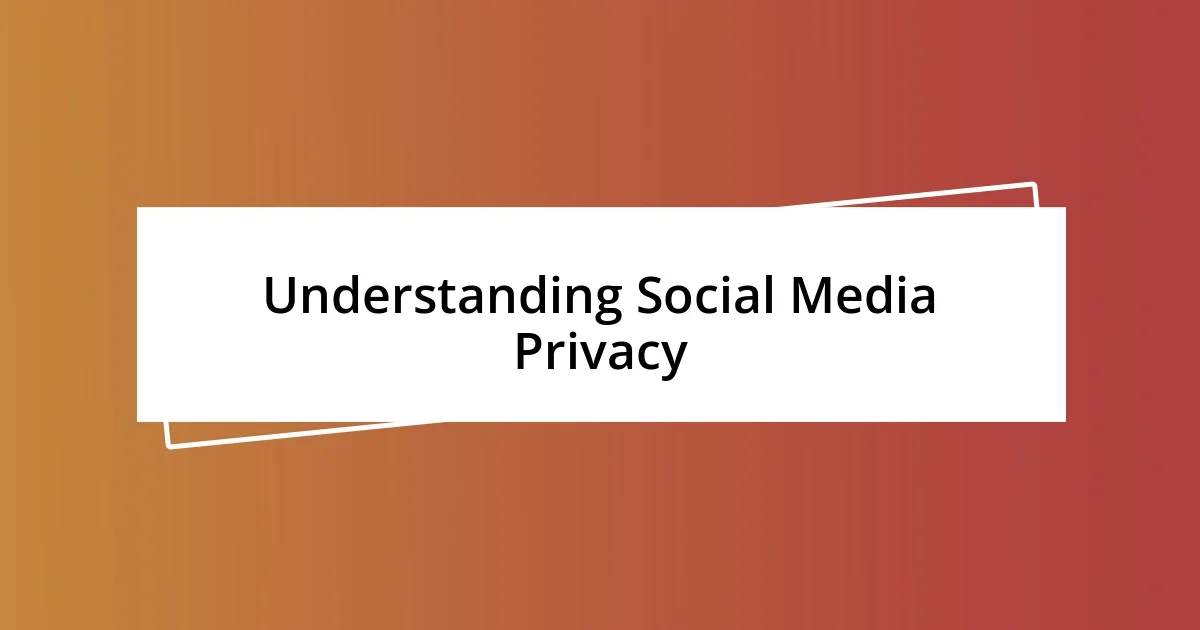
Understanding Social Media Privacy
Social media privacy often feels like a paradox. On one hand, we crave connection and sharing, yet, on the other, we sometimes unknowingly open the door to our personal lives. I remember a time when I posted a seemingly innocuous photo at a cafe, and later realized that my location tag was still active. It made me wonder—how often do we share details without even realizing it?
Every time I scroll through my feed, I can’t help but notice how much personal information we willingly broadcast. It’s as if we’ve traded our privacy for a few likes. I’ve had moments where I hesitate to share a family photo because I become acutely aware of who might be watching. This balance between sharing and safeguarding feels like walking a tightrope, doesn’t it?
Understanding social media privacy starts with recognizing that not everything we post needs to be public. Reflecting on my own habits, I’ve adjusted my privacy settings after reflecting on what I value. Have you considered how your online presence shapes your real-life interactions? Each decision about what to share feels like a small piece of a larger story about who we are—and how much we want the world to know.
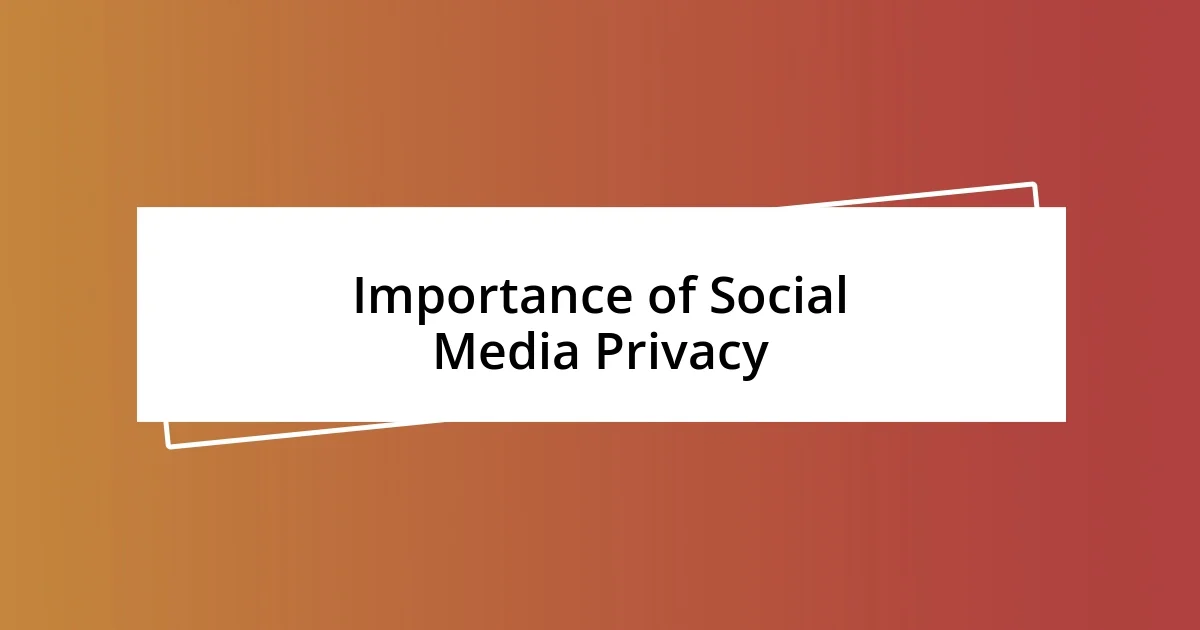
Importance of Social Media Privacy
Social media privacy is crucial because it helps protect our personal information from misuse. I’ve seen friends face serious consequences just from oversharing—like losing job opportunities because of a careless post. It really drives home the point that what we share online can come back to affect our real lives in unexpected ways.
Here are some key reasons why social media privacy matters:
- Identity Theft: Oversharing can provide a goldmine of information for scammers.
- Employment Risks: Employers often research candidates online, and inappropriate content can hinder job prospects.
- Mental Well-being: Constant exposure can lead to anxiety or pressure to curate a perfect online life.
- Control Over Narrative: Privacy allows you to decide what aspects of your life to share, protecting your self-image.
Each of these points reminds me of a time I had to rethink a post about an accomplishment. Initially, I felt proud, but then I paused and wondered how it might be perceived. My decision to keep it private turned out to be a wise one. The importance of social media privacy isn’t just a theoretical concern; it deeply impacts our everyday lives and choices.
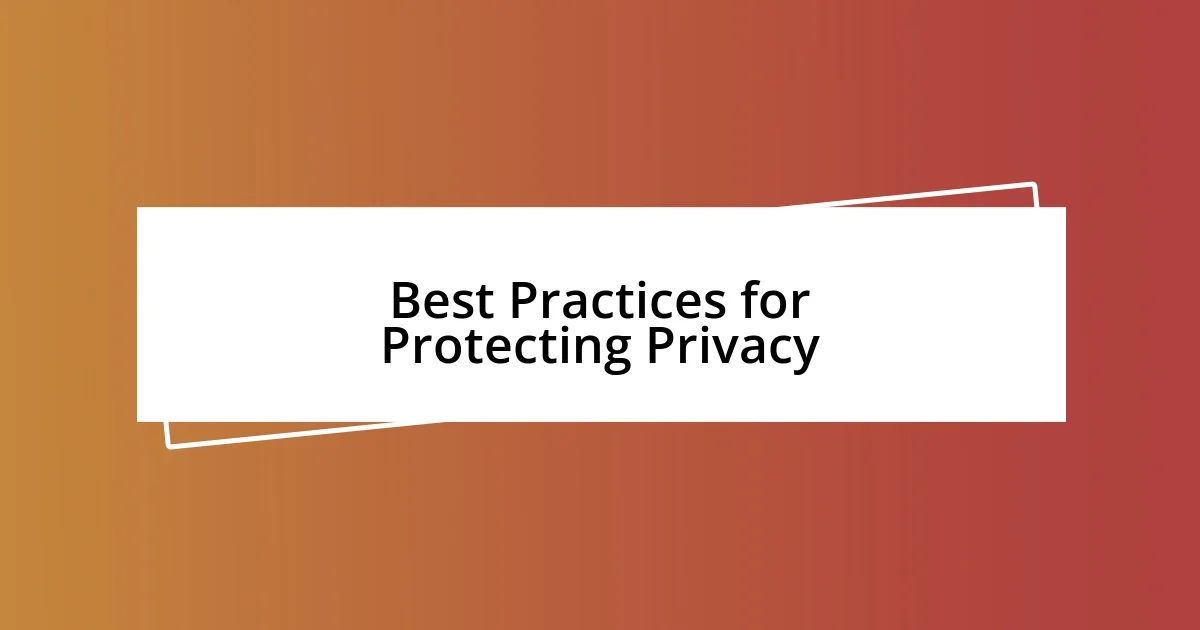
Best Practices for Protecting Privacy
When it comes to protecting privacy on social media, the simplest yet often overlooked practice is to adjust your privacy settings. I remember when I first joined a social platform, I was overwhelmed by the settings options. After some exploration, I discovered ways to limit who could see my posts. By restricting my profile to friends only, I felt a sense of security that encouraged me to engage more freely without the fear of unwanted eyes. Have you ever taken a moment to review your own settings?
Another crucial practice is to be mindful about what you share, even in direct messages. I once mistakenly sent a sensitive document through a messaging app, only to later realize it was accessible to a larger group than I intended. That experience taught me that not all platforms guarantee privacy, so it’s essential to double-check the recipient before hitting send. Have you experienced a similar moment of revelation that changed how you communicate online?
Finally, regular audits of your online presence can be a game changer. I’ve made it a habit to periodically search my name online. The first time I did this, I was startled by the amount of information that was publicly available. It was an eye-opener that encouraged me to delete outdated posts and tighten my digital footprint. Have you considered how often you check your own online visibility?
| Practice | Description |
|---|---|
| Adjust Privacy Settings | Limit who can see your posts and personal information. |
| Be Mindful of Sharing | Always double-check recipients for sensitive information. |
| Conduct Regular Audits | Search your name online to understand your digital footprint. |
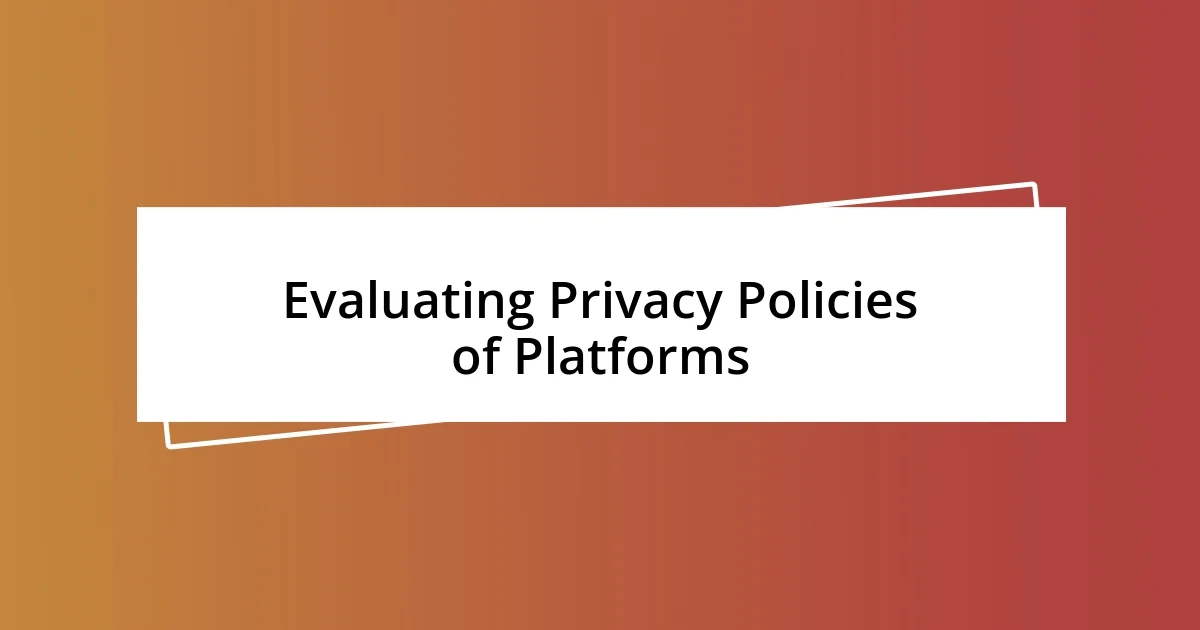
Evaluating Privacy Policies of Platforms
When I sat down to review the privacy policy of a popular social media platform, I couldn’t help but feel overwhelmed by the legal jargon and lengthy text. I remember feeling a bit lost and frustrated. Why was it so hard to find clear information about how my data was being used? This experience made me realize just how essential it is for users to be proactive advocates for their privacy and to take the time to really digest what these policies say.
One of the most striking aspects I found during my evaluation was the difference in transparency among platforms. I discovered that some of them openly encouraged users to ask questions about privacy concerns, while others simply buried the vital information deep within their policies. This contrast reminded me of a time when a friend shared a shocking story about their data being mishandled on a platform they trusted. It made me wonder—how many users are blissfully unaware of the potential risks?
Moreover, I’ve learned that practical examples can help clarify complex policies. For instance, when a platform states they utilize your data for targeted ads, I always think back to the times I felt eerily understood by ads that seemed tailored to my recent online activities. Have you ever experienced this? I realized that understanding these policies is not just about legal obligations; it’s about being an informed user who knows when to protect their personal information.


